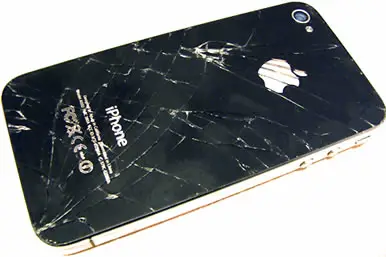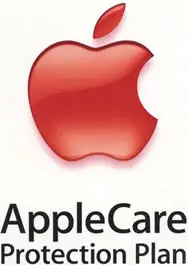Apple Replace a Damaged iPhone?
Have you ever dropped your iPhone in the toilet, or accidentally smashed the screen after it slipped from your hand? If this sounds familiar, then the question on your lips was probably:
"Will Apple replace my iPhone for free?"

It's actually quite unusual to expect a company to replace a product when you break it. When it comes to the iPhone, however, people have high expectations that Apple will switch it for a new one, either because they spent so much on the device in the first place, or because when you sign up to a contract for a year or two, you expect the phone to last the journey. Can you really expect Apple to replace your iPhone for free? To answer this question there are a few things that need to be considered.
If you've only had your iPhone for a year or two there are laws that may mean Apple, or the company that sold it to you, have to replace your handset. If you're going to exercise your consumer rights, it's worth giving the warranty conditions the once-over, along with the legal requirements that Apple has to abide by in the UK.
Apple's warranty
Every iPhone comes with complimentary telephone technical support for 90 days from your iPhone purchase, and a one-year limited warranty. Specifically, this covers the following: "Apple warrants the Apple-branded iPhone, iPad or iPod hardware product and accessories contained in the original packaging ('Apple Product') against defects in materials and workmanship when used normally in accordance with Apple's published guidelines for a period of One (1) year from the date of original retail purchase by the end-user purchaser ('Warranty Period'). Apple's published guidelines include but are not limited to information contained in technical specifications, user manuals and service communications."
While the warranty means your iPhone is covered for a year from the day you purchase it, Apple states that its Limited Warranty for iPhone excludes coverage for "damage resulting from accident, disassembly, unauthorised service and unauthorised modifications." The warranty may also be void if the Liquid Contact indicator in your product has been triggered.
Apple states in the legal document the warranty does not apply in the following cases: "(a) to consumable parts, such as batteries or protective coatings that are designed to diminish over time, unless failure has occurred due to a defect in materials or workmanship; (b) to cosmetic damage, including but not limited to scratches, dents and broken plastic on ports; (c) to damage caused by use with another product; (d) to damage caused by accident, abuse, misuse, liquid contact, fire, earthquake or other external cause; (e) to damage caused by operating the Apple Product outside Apple's published guidelines; (f) to damage caused by service (including upgrades and expansions) performed by anyone who is not a representative of Apple or an Apple Authorized Service Provider (AASP); (g) to an Apple Product that has been modifi ed to alter functionality or capability without the written permission of Apple; (h) to defects caused by normal wear and tear or otherwise due to the normal aging of the Apple Product, or (i) if any serial number has been removed or defaced from the Apple Product."
However, Apple notes even an iPhone that's ineligible for warranty service may be eligible for Out-of-Warranty (OOW) service (for a price). That's as long as it meets the requirements of the OOW service. Certain damage is ineligible for OOW service, including "catastrophic damage, such as the device separating into multiple pieces, and inoperability caused by unauthorised modifications," notes Apple.
AppleCare
Apple sells AppleCare protection to extend the telephone and warranty support that comes with your iPhone from 90 days to two years. You have to purchase this while your handset is still within its one-year warranty - it costs £61. In addition to being able to take the iPhone into the store, under AppleCare it is possible to get an express replacement service.
Reports claim that under AppleCare, you are only able to drop and replace your iPhone twice. Some point out there are insurance plans that will replace your handset should anything happen to it, and you may want to consider this.
Also worth considering: you may not even need the second year's additional coverage. Apple emphasises its One-Year Limited Warranty and AppleCare Protection Plan benefi ts are in addition to rights provided under consumer law. (This is because Apple has been in trouble with various courts around Europe for selling two years of coverage without making it clear to customers there are local laws that may give them sufficient coverage anyway.)

Broken iPhone
Apple notes the following on its website: "When you purchase Apple products, European Union consumer law provides statutory warranty rights in addition to the coverage you receive from the Apple One-Year Limited Warranty and the optional AppleCare Protection Plan."
This EU Consumer Law ensures you will receive free repair or replacement coverage for defects present when you take delivery (Apple's warranty includes defects arising after you take delivery). The key message here is that if a defect was present when you took delivery - such as a faulty antenna - the device should be repaired or replaced. Replacement of a device that had a fault when you bought is not limited to two years; it could be even longer. Your first point of contact should be the seller, which may or may not be Apple.
Consumers in the UK have the right to ask the retailer to replace or repair any faulty item for up to six years after an item is purchased (five years in Scotland). The only drag is you may have to prove that the fault was present when you bought the item and not something that was the result of normal wear and tear.
UK-specific information about the Sale of Goods Act from 1979 at tinyurl.com/krxe4q5. The Act indicates that consumers can expect that goods will be: as described; of a satisfactory quality; fi t for the purpose made known. This final clause is significant if your fault wasn't there when you bought the iPhone. The chances are you bought your handset on a contract; if this is the case you could go back to your network provider and argue that the phone failed to meet the terms of the contract due to the fault.
You may even be able to use the Sale of Goods Act to argue that issues arising from wear and tear were due to a manufacturing defect, although to do this you may need an expert's report from an engineer or a mechanic.
The main problem with the Sale of Goods Act is that it's much harder to get a refund six months after you bought the device. During the fi rst six months, it's up to the retailer to show that any fault is down to the actions or misuse of the buyer, rather than an inherent fault in the product. Unfortunately, after this period, it's down to the buyer to prove that the fault was pre-existing.
However, as well as the Sale of Goods Act, there is also an EU directive that gives consumers extra rights. EU directive 1999/44/EC states that: "A two-year guarantee applies for the sale of all consumer goods everywhere in the EU. In some countries, this may be more, and some manufacturers also choose to offer a longer warranty period."
Crucially, a key point in this directive is that it doesn't require the buyer to demonstrate the fault is inherent in the product and not down to their actions, unlike the Sale of Goods Act. There is more info at tinyurl.com/m9ud8b3, plus Which? has useful information about what to do if you want to return faulty goods at tinyurl.com/krxe4q5.
Out-of-Warranty iPhone
Apple offers a service for out-of-warranty iPhones, so while it's unlikely you can get it fixed for free you may be able to get a replacement for a knocked-down price. In its out-of-warranty terms Apple states: "Certain damage is ineligible for out-of warranty service, including catastrophic damage, such as the device separating into multiple pieces, and inoperability caused by unauthorised modifications. However, an iPhone that has failed due to contact with liquid may be eligible for out-of-warranty service."
In other words, if you drop your iPhone and it smashes into a thousand pieces Apple isn't going to help you, and it may or may not help if you drown it in tea. But, if you turn up with a broken, out-of-warranty iPhone, Apple may offer you a replacement, at a price.
However, you may still be able to use one of the laws described above. For example, if your iPhone is not "fi t for purpose" but you still have a year left on your contract, go to your network and quote the Sale of Goods Act. If you believe a fault in manufacturing has caused an issue you are only experiencing now, you may need to get help to prove this, but you don't need to worry if it's been longer than two years since you bought the device.
